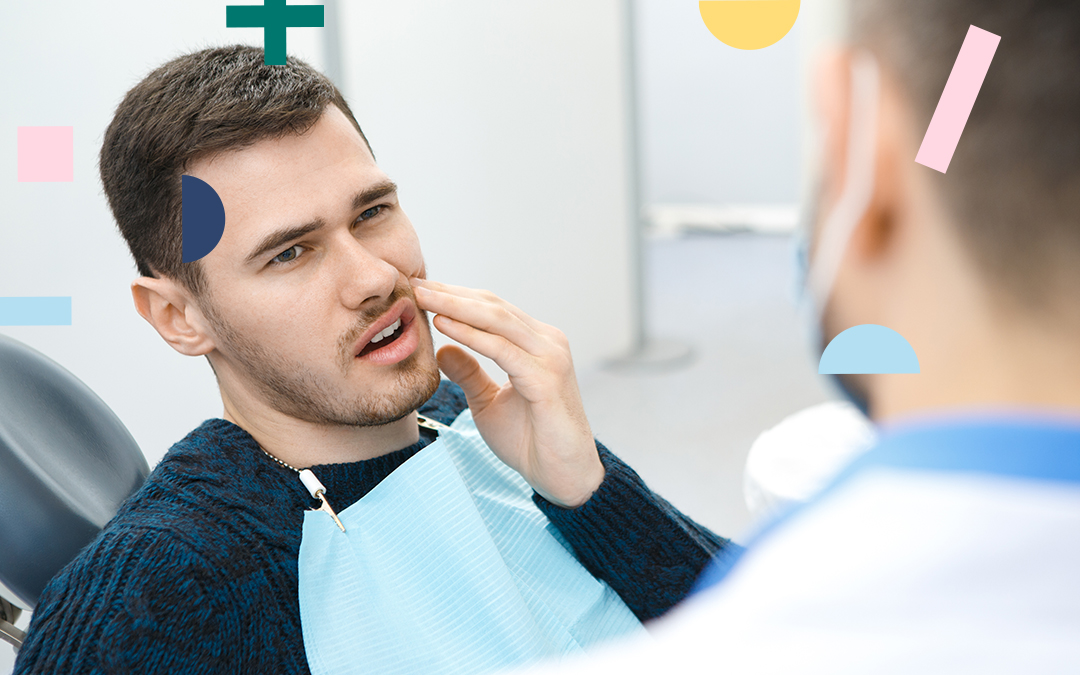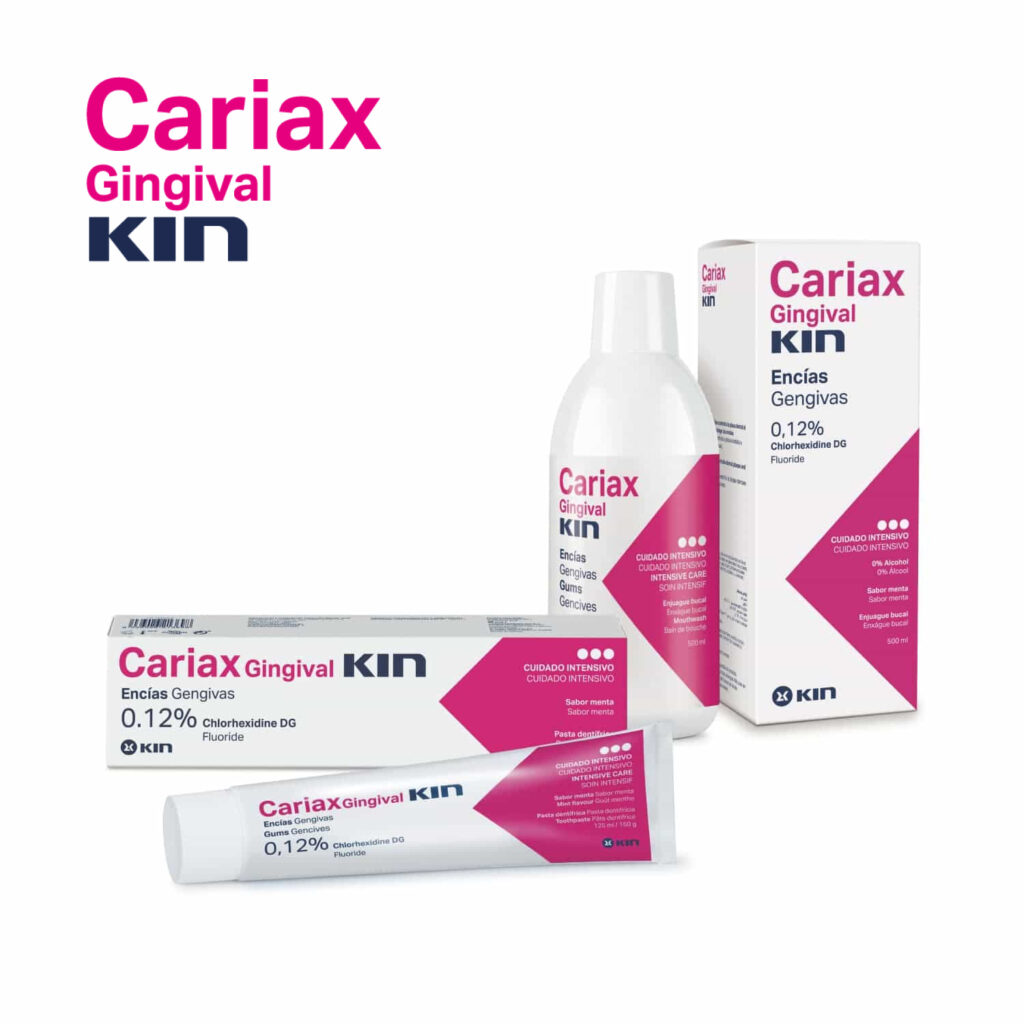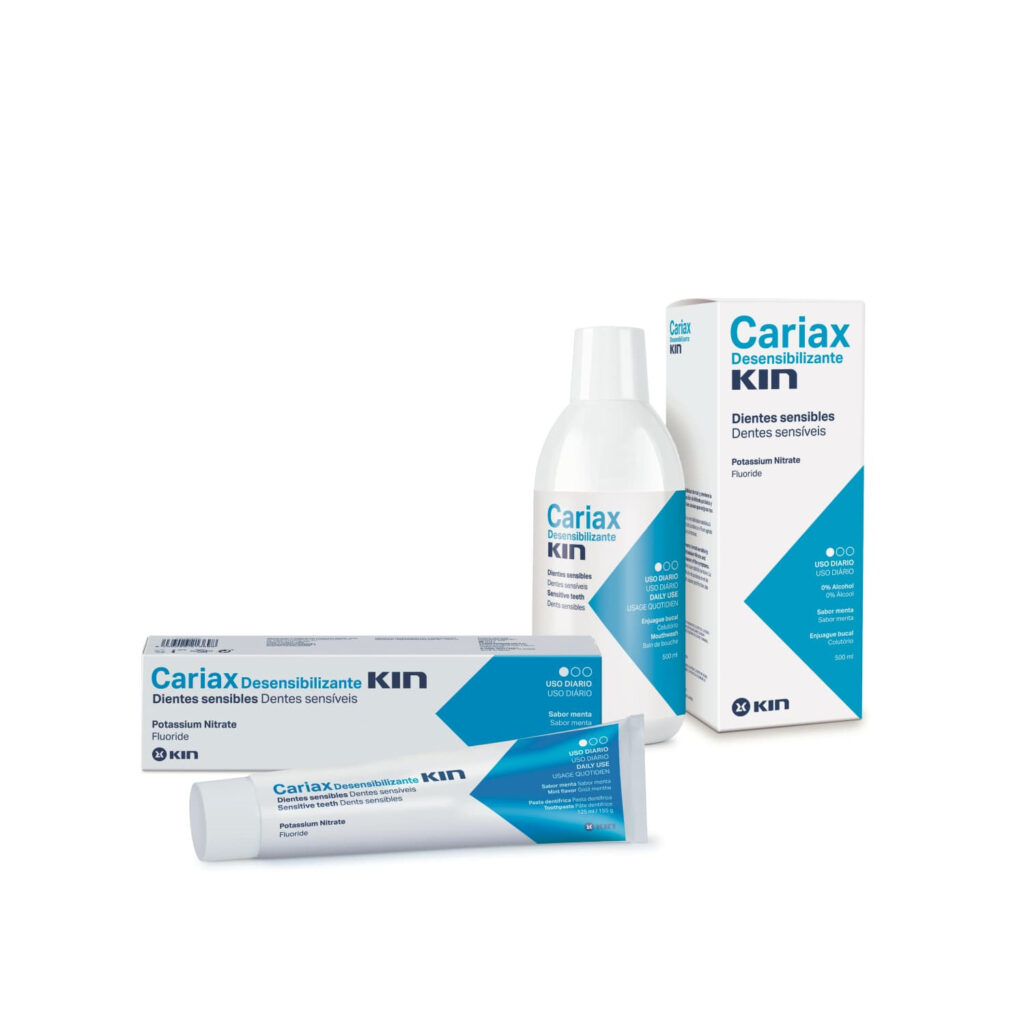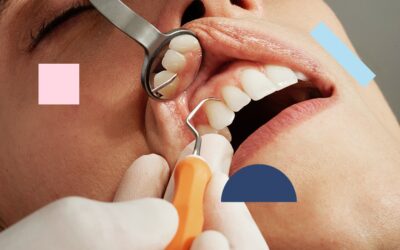One of the most common and also one of the most dreaded symptoms of tooth decay is the pain that can accompany this pain that can accompany this oral pathology.. Caries often goes unnoticed until the discomfort becomes noticeable, forcing us to visit the dentist urgently.
Caries is a very common disease among children, young people and adults, but it does not necessarily have to be accompanied by symptoms such as pain. It is only when oral hygiene has been neglected and regular dental check-ups are not followed that the teeth become teeth ache as a result of tooth decay..
But why does this happen, what causes toothache, and do all cavities cause pain? Find out the dangers of not treating them in time, and how to relieve toothache when a cavity has appeared.
What is a cavity?
Caries is known as tooth decay. damage to the surface of the teeth caused by the action of oral bacteria.. When oral care is inadequate or insufficient, small openings or holes appear in the tooth enamel, which gradually become larger and penetrate into the pulp of the tooth.
These dental erosions are caused by the formation of biofilm on the enamel surface. Bacteria living in the mouth feed on food debris, releasing acids that damage this outermost layer of the tooth..
The consumption of sugary drinks and foods and poor tooth cleaning are some of the most important factors in the formation of cavities. If left untreated, they can spread and affect deeper layers of the teeth. affect the deeper layers of the teeth, causing severe pain, infection and tooth decay.causing severe pain, infection and even tooth loss.
What causes tooth decay
Caries is a process that takes a long time to develop. They do not appear overnight, as they require the slow but continuous action of bacteria. slow but continuous action of the bacteria that naturally that naturally inhabit the mouth.
These bacteria need not be harmful to dental health if their growth is controlled. The action of your own saliva and brushing your teeth after every meal is enough to keep the formation of dental biofilm at bay. keep the formation of dental biofilm, which destroys enamel, at bay. that destroys enamel.
However, today's diet and lifestyle can be detrimental to the maintenance of teeth. There are several causes that can lead to tooth decay. These include the following:
- Frequent consumption of drinks and foods that stick to the teeth.
- Continued intake of sugars.
- Dry mouth, especially in older adults.
- Gum recession, with decay beginning to form near the root of the tooth.
- Lack of oral hygiene, or improper use of cleaning accessories.
- Not attending dental check-ups as often as necessary.
Why do teeth with cavities hurt?
Toothache due to tooth decay is mainly associated with the consumption of hot or cold drinks and sweet or acidic foods. consumption of hot or cold drinks, and sweet or acidic foods.. When caries is left untreated, the damage can penetrate the inside of the tooth and reach the dentine, after destroying the protective outer layer of enamel.
Just below the dentine is the pulp, a soft tissue the pulp, a soft tissue with a large number of nerve endings, is located just below the dentine.. It is commonly known as the 'nerve of the tooth', and when external stimuli can penetrate into it, it causes the tissue to become irritated and painful.
Over time, bacteria gain access to the inside of the tooth and cause an infection of the internal soft tissues. When this happens, instead of acute, temporary pain, caries can develop into constant pain that cannot be relieved even with painkillers.
When does tooth decay pain occur?
Tooth decay pain usually appears as soon as the damage reaches the dentine, increasing in intensity as it approaches the pulp of the tooth. While it is passing through the enamel, the infection progresses without any symptoms of discomfort for the patient. for the patient.
It is the pulp that contains nerve endings that are highly sensitive to pain. To certain external stimuli such as pressure, cold or heat, the pulp reacts and can feel pain for a few seconds after the stimulus has been removed.
As the dentine is affected by the action of caries bacteria, the area of inflammation becomes larger and the pain can become more intense.. It is therefore essential to act as soon as possible to limit the damage and discomfort for the patient.
Why do some dental cavities not hurt?
Tooth decay goes through different phases as the tissues of the tooth are affected. Depending on the phase caries occurs with or without painin addition to other characteristic symptoms.
When oral hygiene habits are deficient, dental biofilm can cause different problems such as dental caries. In the first stage, dental caries will only affect the enamel, at this stage the caries is usually painless and small in size.. Once through the enamel, the caries reaches the dentine, where it is possible to begin to feel a certain sensitivity, usually associated with intermittent pain.It is usually associated with intermittent and not so intense pain.
The best way to detect a cavity that does not hurt is to see a dentist. A qualified professional has the ability to discover any damage to teeth or gums, from the beginnings of dental biofilm build-up or tartar formation to treat it in time.
Dangers of not treating tooth decay in time
In addition to the discomfort caused by pulpitis, or inflammation of the pulp of the tooth as a result of tooth decay, the surrounding tissues can become infected and lead to periodontal infection, i.e. the tissues that support and protect the tooth.: the gum, the ligament and the bone..
If not treated in time, this could lead to the loss of the affected tooth, but and also to significant damage to the gum itself. In severe cases the infection could pass into the bloodstreamand spread throughout the rest of the body.
Although the process of tooth infection is slow, the earlier it is detected and treated, the better the results.
Even so, caries prevention is always the best remedy to keep teeth completely healthy, so that they can fulfill their function perfectly despite the passage of time. Maintain a healthy mouth with daily care routines.
Discover our products for daily oral care

How to avoid the pain of tooth decay?
As we have already indicated, the best option to avoid the pain of tooth decay is to control the onset of this pathology. We would like to highlight 3 very important guidelines for taking the utmost care of teeth:
Taking care of oral hygiene
The brushing teeth after every meal is essential to prevent the formation of biofilm that causes caries. In addition to toothbrushing, the use of dental floss, mouthwashes and other oral hygiene accessories are essential to clean the entire surface of the teeth and gums, preventing bacterial growth.
Watch outr food
Avoid consumption of acidic or excessively sugary foods helps to control the action of caries-causing bacteria. This type of food damages tooth enamel, causing small channels to form on the surface of the teeth through which bacteria can penetrate.
Regular visits to the dentist
No matter how careful you are to keep caries at bay, there is nothing better than going to the dentist for a complete check-up. Only a professional can detect an incipient caries processand even give you the right guidelines if you are not following the correct oral hygiene adapted to your needs.
If tooth pain is a concern for you, start by taking care of yourself against tooth decay with the best oral health practices. If in doubt, ask your dentist what recommendations you can incorporate into your routine to make your teeth healthier and stronger. your teeth healthier and stronger.


 How to relieve pain with newly placed braces?
How to relieve pain with newly placed braces? How to keep your breath fresh?
How to keep your breath fresh? 10 Tips to take care of the oral health of the little ones
10 Tips to take care of the oral health of the little ones




